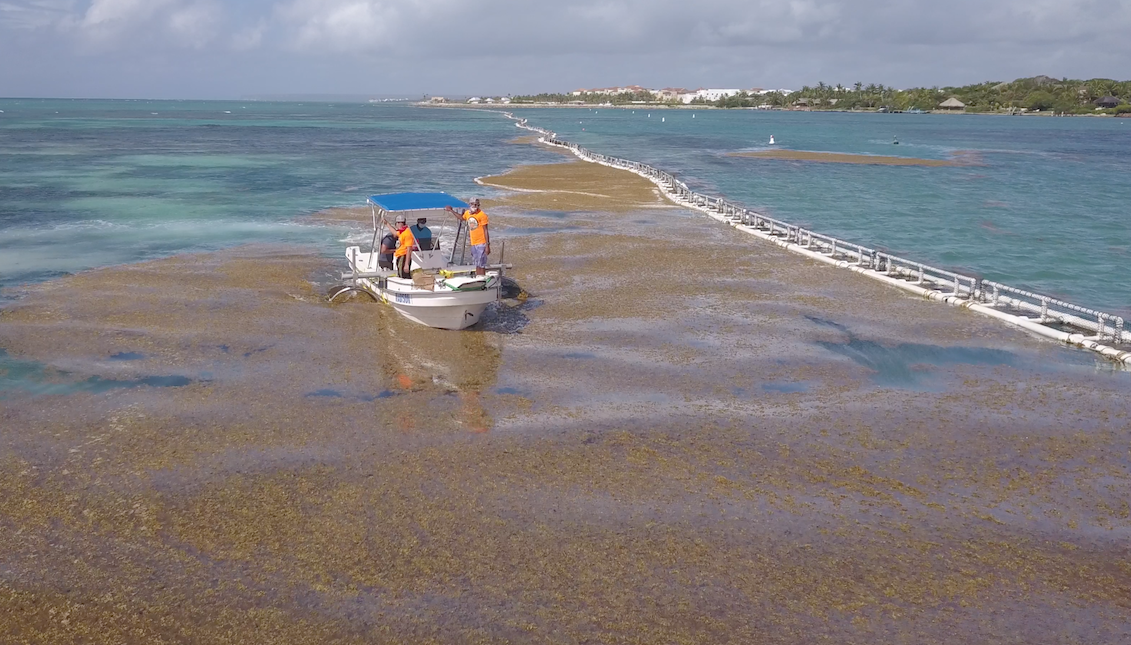
Summing Up The Neighborhood Summit
WASHINGTON, D.C. — During his whirlwind trip to Guadalajara to meet with, Mexico President Felipe Calderón and Canada Prime-minister Stephen Harper, President Obama disclosed to his North American homologues that his planned action on U.S. immigration reform has now been put off until 2010.
The president had made a similar disclosure the Friday prior to his trip to a roundtable press meeting with Hispanic Link News Service and other reporters covering the Latino beat.
At that time Obama outlined an immigration reform framework and said preparatory administrative measures were already underway. He cited the FBI’s clearing of a background-check backlog, greater use of advanced technologies for processing, and the termination of indiscriminate raids.
In the fall, a bipartisan taskforce of invested parties would begin crafting legislation for introduction in the beginning of the new year. Republican buy-in is essential to achieve comprehensive reform, he told us.
Obama also pledged to work on Mexico and Canada border issues related to emissions control that contribute to global warming and address the drug cartel menace. The U.S. and Canada have already begun training 9,000 college-educated Mexican federal police officers for that effort.
Earlier, the influential Mexico City news website EjeCentral.com summed up the summit as having more disaccord than producing agreements and that little happened of major substance.
Before the meeting, President Felipe Calderón was reported to have wanted Harper to back off from the unilteral imposition of a visa requirement of Mexican citizens visiting Canada. Not for now, Harper is reported to have told Calderón.
The visa requirement will remain for the present while Canada formulates a policy addressing people who seek asylum. In turn, Mexico has triggered a retaliatory requirement of Canadians who work in Mexico who must now also acquire visas. EjeCentral.com reported that 69 percent of the Canadian public approves of the measure. Of 225 asylum applications received weekly before the visa requirement, a drop to 17 percent was reported for the week after the measure was applied.
Calderón sought for President Obama to cancel the prohibition of Mexican cargo vessels on U.S. highways, a measure running counter to the NAFTA. U.S. comercial interests, except for the trucking industry, generally favor lifting the embargo because of retaliatory tariffs imposed by Mexico on a large number of products that affect 40 states. Obama has previously disclosed that work is progressing for a measure to go to Congress soon.
Prime Minister Harper meanwhile has expressed displeasure with the U.S. “Buy American” provisions in the stimulus law that Obama signed in February. The package has been interpreted by local and state governments as excluding Canada and Mexico from bidding.
While Obama endorses Calderón’s use of the military to combat drug-trafficking cartels, Senator Patrick Leahy (D-Vermont), the powerful chairman of the Subcommittee on Foreign Operations, in a released statement Aug. 6, said it was "premature" to declare Mexico to have met the requirements for the conditional U.S. funding assistance for its military-led drug war.
Of the $1.4 billion approved in 2007 for the three-year assistance program to disrupt and curb criminal drug organizations, the law requires the administration to withhold 15 percent of the appropriation each year until the Secretary of State submits a report to Congress affirming that Mexico's military and police who violate human rights, are prosecuted in accordance with Mexican and international law. An unnamed White House spokesman said Obama brought up the matter with Calderón during their direct talks.
Preparations and emergency measures concerning the “novel H1N1” (formerly referred to as swine flu) was a topic where there was general agreement about public health measures to take.
“The North American Leaders' Summit,” as the meeting was billed, is the annual gathering of the North American leaders to do collaborative work on issues of mutual concern, such as border security, immigration reform and economic recovery.
At the press meeting with Hispanic Link and nine other reporters prior to his Guadalajara trip, Obama delineated a difference between NAFTA, the trade agreement, and this summit on interests between the North American heads of state.
President Obama has previously met twice with Calderón and Harper. The Canadian prime minister is scheduled to arrive in Washington for further talks in September.
[José de la Isla’s latest book is now available free in digital version at www.DayNightLifeDeathHope.com. He writes a weekly commentary for Hispanic Link News Service and is author of The Rise of Hispanic Political Power (2003). E-mail him at [email protected].]
©2009









DEJE UN COMENTARIO:
¡Únete a la discusión! Deja un comentario.